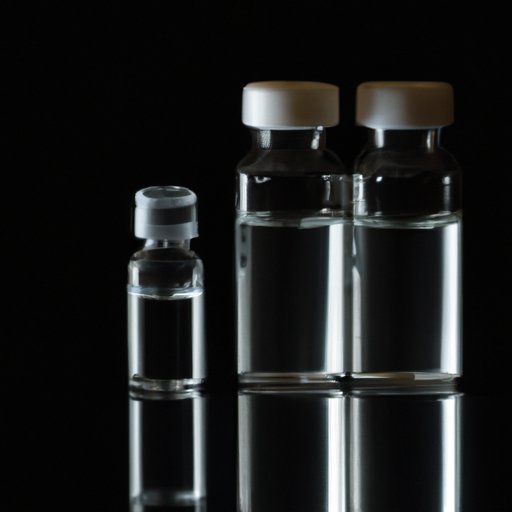
I. Introduction
Monkeypox is a rare infectious disease that can occur in humans and animals. Over the past year, there have been cases reported in various parts of the world, including West and Central Africa, the United States, Israel, and Singapore. Although the virus is not as deadly as smallpox, it can lead to severe complications, including brain damage and death. In this article, we will provide you with valuable insights on how to protect yourself from monkeypox.
II. Importance of Good Hygiene Practices
One of the most effective ways to prevent the spread of monkeypox is through good hygiene practices, such as regular handwashing, avoiding contact with infected individuals, and wearing protective clothing. Since the virus can be transmitted through respiratory droplets or direct contact with infected bodily fluids, it is crucial to be extra vigilant in places where there is an elevated risk of exposure, such as hospitals, clinics, and animal markets. For instance, washing your hands frequently with soap and water or using an alcohol-based sanitizer can help to kill the virus and minimize the risk of spreading it to other people.
III. Disinfection of Surfaces
Another important step in protecting yourself from monkeypox is to disinfect surfaces that might be contaminated with the virus. This includes items like bedding, clothing, and eating utensils. You should use a bleach-based cleaning product to clean these items since bleach can kill the virus. You must also ensure that you are handling these items with care to avoid exposure. If possible, it is best to avoid using contaminated items until they have been thoroughly disinfected.
IV. Boosting Immune System
Evidence suggests that individuals with weaker immune systems may be more vulnerable to contracting monkeypox. Therefore, it is essential to take proactive steps to boost your immune system, including consuming a healthy diet, getting sufficient rest, and taking supplements. Nutrients such as Zinc, vitamins A, C, and D, and Omega 3 fatty acids are some of the nutrients that can boost immunity. It is also vital to avoid unhealthy habits that can weaken your immune system, including smoking, alcohol consumption, and unhealthy diet selections.
V. Vaccines and Antiviral Medications
Vaccines and antiviral medications can offer additional protection against monkeypox. If you are in an area where monkeypox is prevalent, it is crucial to discuss with your physician the available options for vaccination. The smallpox vaccine can also provide some protection against monkeypox since the two viruses are similar. Treatment for monkeypox usually focuses on relieving symptoms, although antiviral medications may be prescribed in more severe cases to reduce the duration of the illness.
VI. Common Misconceptions About Monkeypox
There are various common misconceptions about monkeypox that need to be addressed. Firstly, it is not a deadly virus like smallpox. Still, it can cause severe symptoms, and it is essential to take preventive measures to reduce the exposure and spread of the virus. Secondly, there is no known cure for monkeypox, but there are treatments available to relieve its symptoms. Finally, monkeypox virus is not transmitted to humans through monkeys; it is usually spread through consumption of infected animals, bites, or contact with bodily fluids of an infected person which then spread through respiratory droplets.
VII. Conclusion
Protecting yourself from monkeypox starts with taking appropriate measures such as regular handwashing, disinfecting surfaces, boosting your immune system, using vaccines and antiviral medications, and addressing misconceptions about the virus. Therefore, staying vigilant and prioritizing personal hygiene, particularly in areas where outbreaks occur, can significantly reduce your risk of contracting the virus. It is equally essential to get tested or seek medical attention if you experience any of the symptoms associated with monkeypox, such as fever, rash, swollen lymph nodes, and body aches.




